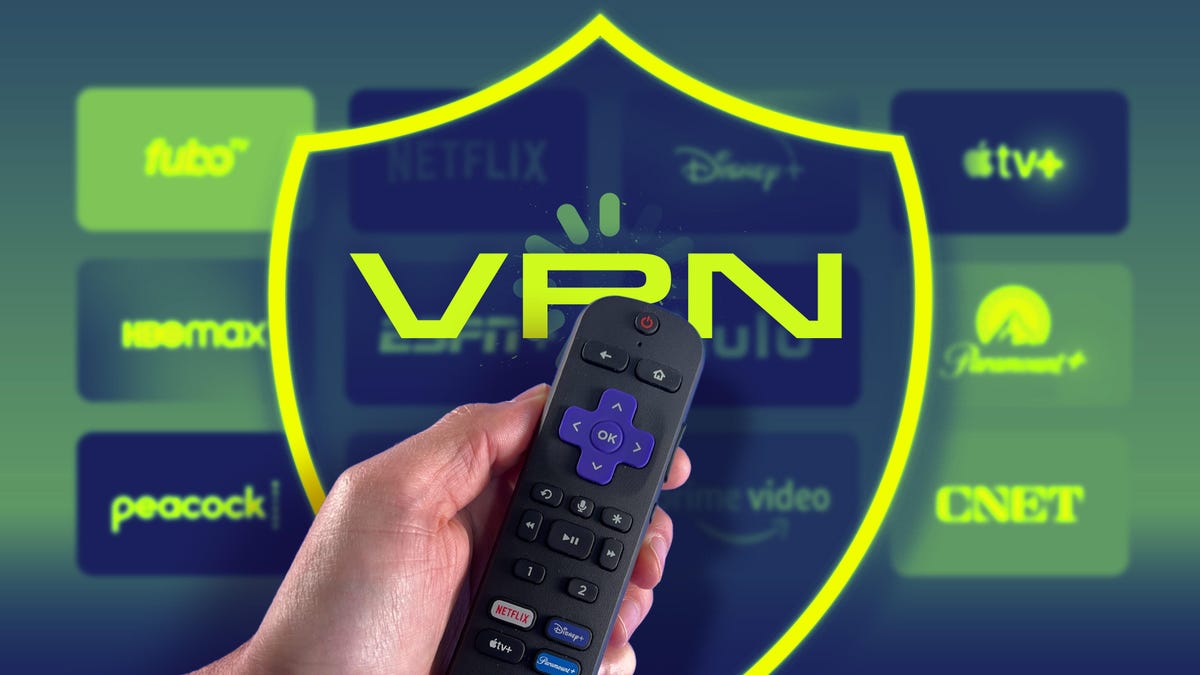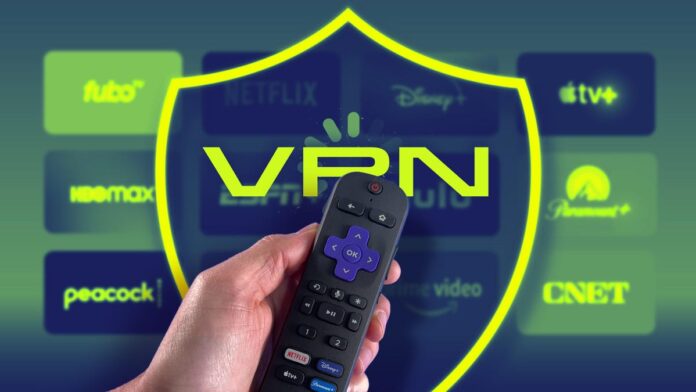
Based on our years of experience using and testing VPNs, here’s what you should consider when choosing a VPN for streaming.
Streaming capabilities
Your VPN’s capacity to access streaming content is the top factor to consider in a VPN for streaming. If your VPN can’t access geo-restricted streaming content, it isn’t fit for this purpose. It’s also important to make sure that the VPN you choose works well for the specific streaming services you want to access. Think about the streaming services you want to watch like Netflix, Disney Plus, Amazon Prime Video, Max, Hulu, Peacock, Crunchyroll, YouTube TV and Sling — then try your VPN with those services to see if it works. We’ve found that ExpressVPN, NordVPN and Surfshark all work reliably with each of those streaming services across most platforms.
Keep in mind that a streaming service that works with a specific VPN today may not tomorrow (and vice versa). Sometimes a simple server switch can do the trick and get you access to the content you’re looking for. If not, you can alert your VPN’s support team to the issue and they may be able to get it resolved. Each of these VPNs will give you your money back within 30 days of purchase, so if it happens to not work as well as you want, you can get a refund. Check out the best VPNs for Netflix and the best VPNs for Amazon Prime Video for more information.
Speed
Your VPN’s speed performance plays a major role in the overall quality of your streaming experience. You’ll need a VPN that’s fast, especially if you’re streaming in 4K or if you’re accessing geo-blocked content from a region that’s a considerable distance from your physical location. Generally, you’ll need download speeds of 25Mbps at a bare minimum for 4K streaming, but you’ll want at least 50Mbps for reliable 4K streaming. You can get by with far less (10-20Mbps) for HD streaming. All VPNs will slow your speeds somewhat (sometimes by 50% or more), but if your VPN is slowing your connection too much, you may end up experiencing a lot of buffering or lower-quality video playback. A fast streaming VPN will only reduce your download speeds minimally — ideally by 25% or less on average. As long as your connection is fast enough to begin with, the speed loss shouldn’t be noticeable.
Privacy
Regardless of what you’re using your VPN for, privacy is a key consideration for any VPN service. Your VPN should have privacy measures in place, like DNS leak protection, a kill switch, modern encryption protocols and a no-logs policy (ideally one that’s been audited or tested in the wild). A VPN that provides the necessary privacy protections will ensure that your internet traffic is never leaked unencrypted.
Network
A good VPN for streaming should have a network of servers in locations across the globe. If you’re looking to fully optimize your streaming and get access to the largest selection of streaming content, then you’ll probably want to choose a VPN with servers located in the largest number of countries. If you’re looking to access content from a specific region, you should check to ensure the VPN you want to use has servers in the region(s) you need. You can check the VPN’s server page on its website to see what countries it has servers in before purchasing a subscription. Most of our top picks feature thousands of servers in 100-plus countries. To unblock streaming content from a specific country, all you need to do is use the VPN app to connect to a server located in the country from which you want to stream content. For example, to access the US Netflix library, ensure you’re connected to a server in the US. Or if you want to access content on BBC iPlayer, connect to a UK server.
Device compatibility
You’ll also want to make sure that the streaming VPN you choose is compatible with the device on which you want to stream content, whether that’s a mobile device, laptop, smart TV or streaming device. Most VPNs are compatible with a wide range of devices, but it’s always a good idea to confirm that the service you’re considering will work with your device. Many VPNs have apps for Fire TV and Android TV that work on streaming devices or smart TVs, but not every provider has an Apple TV app yet. NordVPN, ExpressVPN, Surfshark, Proton VPN, PIA and IPVanish are a few of the providers that do have Apple TV apps. (Disclosure: IPVanish is owned by the same parent company as CNET, Ziff Davis.) Luckily, you can use a VPN on your router if you want to use a VPN with devices like PlayStation 5 and Xbox consoles or Roku streaming devices that don’t support native VPN apps.
Router installation
It isn’t necessary to use a router to stream geo-blocked content with a VPN, but it can help if your smart TV or streaming device doesn’t natively support VPN apps. Also, with a VPN router setup, you can protect all of the devices on your network at once while using only one of your allotted simultaneous connections. Installing a VPN on a compatible router can be difficult and even risky if you try it yourself, so be sure you have the technical know-how to do so before proceeding. Alternatively, you can purchase a router with a VPN preinstalled from a company like FlashRouters. If you’re an ExpressVPN user, you can purchase the provider’s Aircove router or use its intuitive router app on your existing VPN-compatible router.
Cost
VPN prices can vary considerably from one provider to another. A monthly VPN subscription can range anywhere from about $5 to $15 per month. Longer-term VPN subscription plans often feature introductory pricing around $40 to $100 for the first year. But be aware that renewal prices can sometimes double or even quadruple — with VPN renewal pricing coming in anywhere from $50 to $150 or more per year after introductory term. If you’re on a budget, take a look at our list of the best cheap VPNs. You can even use a VPN to save money on your streaming subscriptions because a VPN can help you access more global content without you having to subscribe to as many streaming services.
Sports streaming
If you’re a sports fan, you can use a VPN to avoid regional blackouts and stream sports from anywhere. To do so, just connect to a VPN server in a location where the sporting event is accessible online — whether it’s a specific U.S. city, or a different country — and you should be able to stream all the sports you want. For instance, you can use a VPN to stream out-of-market NFL games or watch NFL matches while traveling abroad.


